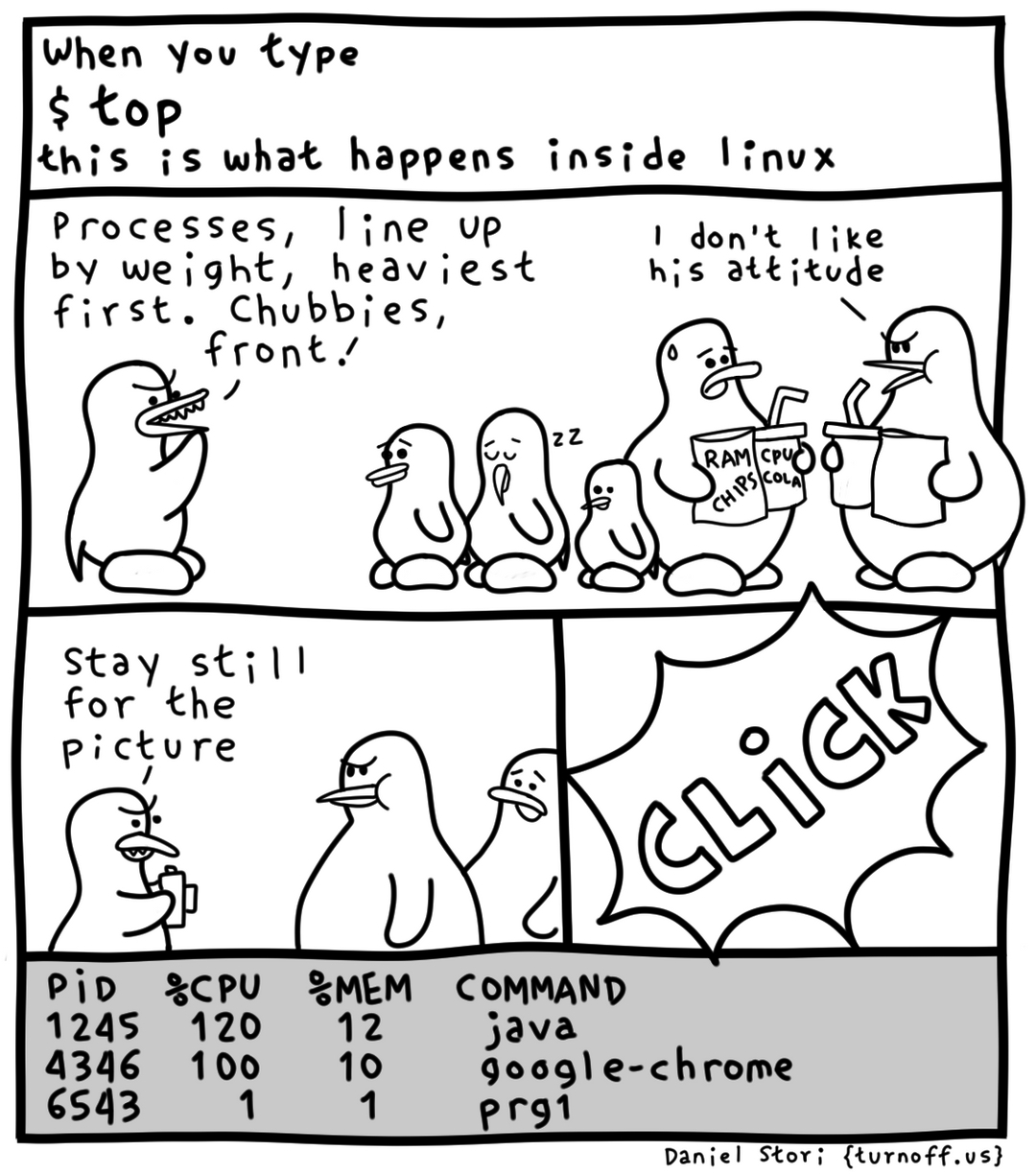this post was submitted on 16 Feb 2024
997 points (99.2% liked)
linuxmemes
23037 readers
1640 users here now
Hint: :q!
Sister communities:
Community rules (click to expand)
1. Follow the site-wide rules
- Instance-wide TOS: https://legal.lemmy.world/tos/
- Lemmy code of conduct: https://join-lemmy.org/docs/code_of_conduct.html
2. Be civil
- Understand the difference between a joke and an insult.
- Do not harrass or attack users for any reason. This includes using blanket terms, like "every user of thing".
- Don't get baited into back-and-forth insults. We are not animals.
- Leave remarks of "peasantry" to the PCMR community. If you dislike an OS/service/application, attack the thing you dislike, not the individuals who use it. Some people may not have a choice.
- Bigotry will not be tolerated.
- These rules are somewhat loosened when the subject is a public figure. Still, do not attack their person or incite harrassment.
3. Post Linux-related content
- Including Unix and BSD.
- Non-Linux content is acceptable as long as it makes a reference to Linux. For example, the poorly made mockery of
sudoin Windows. - No porn. Even if you watch it on a Linux machine.
4. No recent reposts
- Everybody uses Arch btw, can't quit Vim, <loves/tolerates/hates> systemd, and wants to interject for a moment. You can stop now.
5. 🇬🇧 Language/язык/Sprache
- This is primarily an English-speaking community. 🇬🇧🇦🇺🇺🇸
- Comments written in other languages are allowed.
- The substance of a post should be comprehensible for people who only speak English.
- Titles and post bodies written in other languages will be allowed, but only as long as the above rule is observed.
Please report posts and comments that break these rules!
Important: never execute code or follow advice that you don't understand or can't verify, especially here. The word of the day is credibility. This is a meme community -- even the most helpful comments might just be shitposts that can damage your system. Be aware, be smart, don't remove France.
founded 2 years ago
MODERATORS
you are viewing a single comment's thread
view the rest of the comments
view the rest of the comments

Timer based interrupts are the foundation of pre-emptive multitasking operating systems.
You set up a timer to run every N milliseconds and generate an interrupt. The interrupt handler, the scheduler, decides what process will run during the next time slice (the time between these interrupts), and handles the task of saving the current process' state and restoring the next process' state.
To do that it saves all the CPU registers (incl stack pointer, instruction pointer, etc), updates the state of the process (runnable, running, blocked), and restores the registers for the next process, changes it's state to running, then exits and the CPU resumes where the next process left off last time it was in a running state.
While it does that switcheroo, it can add how long the previous process was running.
The other thing that can cause a process to change state is when it asks for a resource that will take a while to access. Like waiting for keyboard input. Or reading from the disk. Or waiting for a tcp connection. Long and short of it is the kernel puts the process in a blocked state and waits for the appropriate I/O interrupt to put the process in a runnable state.
Or something along those lines. It's been ages since I took an OS class and maybe I don't have the details perfect but hopefully that gives you the gist of it.
as a non computer scientist who is programming multitasking applications, you did a good job at explaining context switching :)
I think a lot of modern kernels are “tickless” - they don’t use a timeslice timer, and only context switch on IO interrupt, process yield, or when timeouts are specifically requested (including capping cpu-bound processes). https://en.m.wikipedia.org/wiki/Tickless_kernel
Tickless means it’s not based on the computer frequency and idle CPUs can stay idle rather than being annoyingly brought into high power mode ever 100 Hz, but it’s still firing interrupts based on scaling timed variables.
They’re now called “Dynticks”
SUSE wrote the vaguely more understandable write up that Linux foundation links to: https://www.suse.com/c/cpu-isolation-full-dynticks-part2/
BTW, the Linux RCU code is evil but interesting: https://www.p99conf.io/session/how-to-avoid-learning-the-linux-kernel-memory-model/
Fascinating stuff. Obviously a lot has changed since I took an undergrad OS class lol. Hell, Linux didn't even exist back then.
Oh, because its* a pointer to state-change. Good catch!